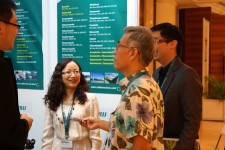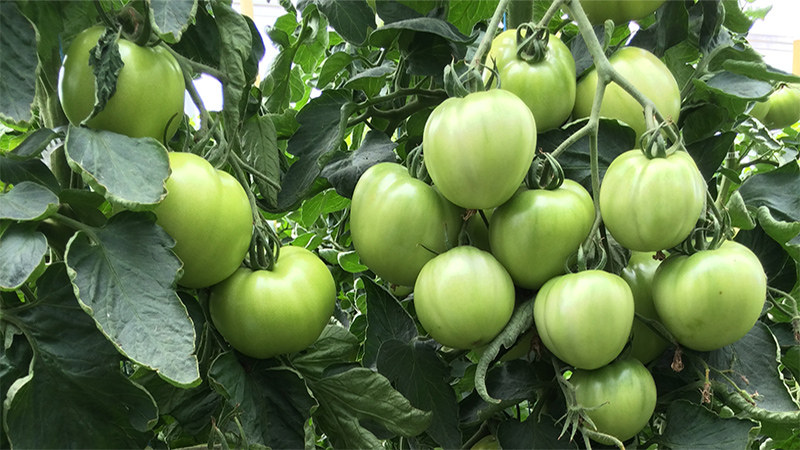FCI Trade Summit Focuses on Food Security in Asia, ASEAN Agriculture

The Farm Chemicals International 2012 Trade Summit played host to more than 200 crop input industry players in Jakarta, Indonesia, last week, where delegates representing 13 countries built strategic relationships to boost the region’s access to crop protection products – products that Southeast Asia demands for its agricultural growth.
In Jakarta, attendees established countless business connections on the trade show floor, packed with dozens of reputable and dynamic manufacturers and formulators. They gained know-how for entering this rapidly growing emerging market over two concurrent days of plenary sessions.
And what they came to do most of all? Connect with each other to explore new business possibilities. Meeting schedules filled up quickly, and there was no shortage of networking opportunities.
“It is this incredibly unique value proposition that makes the FCI Trade Summit more pragmatic and productive than other crop protection events,” said Eric Davis, publisher of FCI and FCI Trade Summit founder.
Terry Clark, of Ontario, Canada, attended the Summit for the first time in Jakarta. The Director of global business development for agchem developer and marketer Adjuvants Plus Inc. called the event “valuable for exploring new business opportunities within Asia and for sourcing products for other global markets. The FCI Summit fulfilled its mandate by creating new business opportunities for those attending.” He added: “The Summit provided a platform to bring members of the industry together to exchange information that will contribute toward meeting the food production needs of an expanding global population.”
Indonesia’s output from palm, cocoa and rubber plantations and food crops has surged more than one-third in the past decade, and the country relies heavily on the agricultural industry for jobs (43% of citizens employed by ag) and income (15% of GDP).
“Our goal through these meetings is to create more transparency in the value chain of agricultural technology to help not only maximize current acreage, but to help small shareholders access the tools they require to be more profitable,” FCI Editor David Frabotta noted in his opening address to the delegation. The event marked the second FCI Trade Summit in Southeast Asia and the 11th worldwide since 2008.
Indonesia Crop Protection Update
At the plenary sessions, Deddy Djuniadi, Executive Director of CropLife Indonesia, helped prospective business partners navigate the country’s soon-to-change regulations for registering crop protection products. Indonesia joins a host of national governments adopting more internationally accepted standards.
These new regulations mean higher product efficacy levels, more stringent environmental standards, better agricultural practices and preservation of key trading partners. Thailand preceded Indonesia’s regulatory shift with new rules implemented beginning Aug. 22, 2011. Malaysia and Vietnam are also in final deliberations on a draft proposal of new rules.
Some attendees inquired about registration of biological crop protection products in Indonesia. Biologicals have gained notable momentum in many pesticides markets, but they are still under discussion and will have a place within Indonesia’s new framework, Djuniadi said. No regulations currently exist in the country.
The FCI Summit continued to confront the dangerous epidemic of counterfeit pesticides. Siang Hee Tan, executive director of CropLife Asia, estimated that 20% to 30% of products entering the market in the region are counterfeit, and he urged delegates to do their part to stem illegal activity by thoroughly vetting trading partners while refusing to put the onus solely on the agrochemical corporate giants.
On the positive side, Tan discussed how CropLife is working with governments to articulate pro-private sector investment. The non-profit is also reaching out to millions of farmers in the region (often via SMS texts) on integrated pest management (IPM), resistance management and container recycling. Just one recent example: it spearheaded a chili IPM program in India, which called for the training of 1,400 farmers in nine villages to grow export-quality produce within maximum residue limits (MRLs).
“It is not only about input supplies, but all the way downstream. Supported by stewardship, by teaching farmers to grow properly, we can all have food security,” Tan said. In ASEAN countries alone, 65 million people go hungry every day. The Association of Southeast Asian Nations, more commonly known as ASEAN, is a geopolitical and economic organization made up of 10 nations, including Indonesia.
Vasant Patil, director of regulatory affairs for CropLife Asia, addressed the pesticide industry’s responsibility for transferring crop protection technologies to farmers: “It is our job to educate…Make a profit, but do it ethically and do it responsibly.”
The next FCI Trade Summit will take place this May in Durban, South Africa.
Watch www.fcitradesummit.com for details, to be announced soon.






